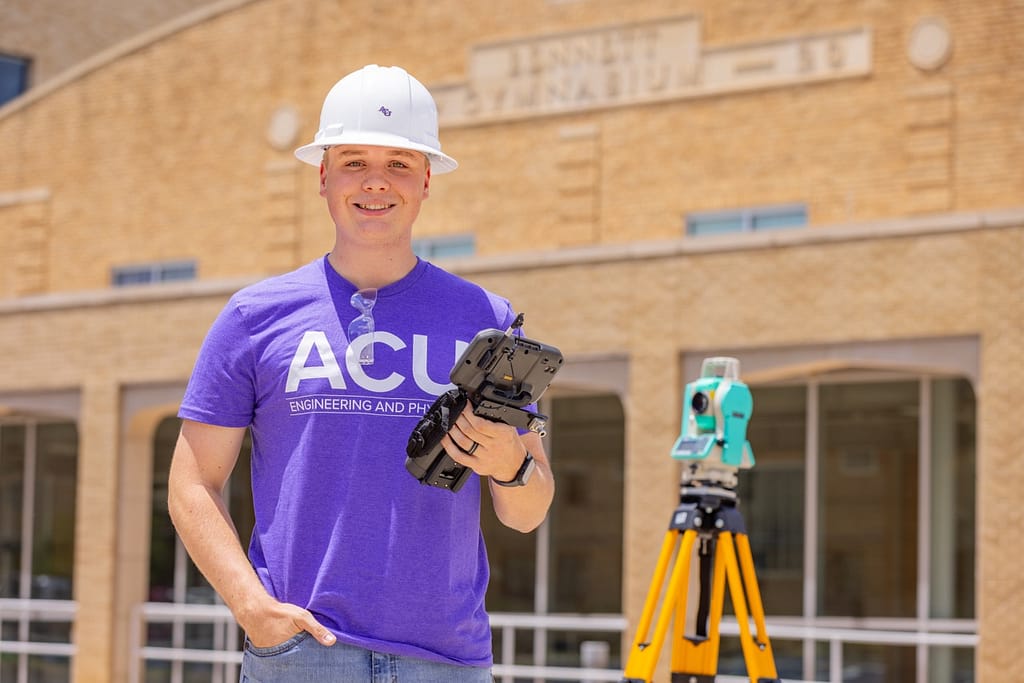In ACU’s Engineering programs, students are prepared to solve today’s complicated problems through a combination of industry-informed professional skill development, invaluable hands-on experience, one-to-one mentoring, and access to state-of-the-art labs. First-year engineering students begin by attending their first job fair, collaborating in group projects and experiencing introductory courses in engineering, math and science. This foundation to the major allows students to take beginning courses first and declare a specific engineering focus later, once they have discerned the differences in subject as they relate to their individual strengths.
Majors
STUDENT OPPORTUNITIES
International Opportunities
Whether through the Study Abroad program in Spain or Germany, or an international mission trip that offers heart-and-hand service to others, our students are able to take their experience in engineering beyond campus to discover other cultures and perspectives.
In ACU’s Engineering program, we emphasize giving back both locally and abroad. Through our Junior Clinic experience, students have made significant impacts on the greater community.
Check out a few of the ways our students’ projects have benefited others and made a difference in the world around us.
Student Professional Organizations
Iron sharpens iron among our students as they challenge and support each other through competitions, conferences, and service projects within chapters of the American Society of Civil Engineers (ASCE), Society of Women Engineers (SWE), American Nuclear Society (ANS), ACU Robotics VEXU Team and Society of Automotive Engineers (SAE).
STUDENT EXPERIENCE
At ACU, our engineering students embark on a comprehensive 4-year program that combines classroom lectures with hands-on projects, fostering a robust learning experience. From their first semester, students engage in group projects, culminating in technical presentations to local industry professionals and the ACU community. By their junior year, they contribute to the community through the Junior Clinic project, supporting local or international non-profits. In their senior year, students participate in the Senior Clinic, collaborating with industry professionals to solve real-world engineering challenges. This capstone course, which covers all aspects of engineering from A to Z, is the pinnacle of their education, equipping them with the skills and experience needed for their future careers.
Industry Leaders as Real Clients
Engineering Senior Clinic gives students the opportunity to work directly with industry leaders as actual clients. Students work as true interns under renowned companies to solve problems while building lasting relationships in the industry. A typical assignment requires designing, building, testing, and delivering a final product that meets a company’s specifications and requirements. Students have worked with companies such as Lithic Industries, NASA Kennedy Space Center, Raytheon, Rockwell Collins, Great Lakes Cheese and Hudl.
STUDENT OUTCOMES
With our average starting salary starting at $76,000 per year, most graduates go straight into industry positions, while others enroll in top graduate programs in civil, nuclear, environmental, mechanical, structural and aerospace engineering.
The department’s many opportunities and experiences expand your robust education and culminate into a well-rounded resumé. Our students are finding employment at some of the biggest names in their industries:
“ACU’s Engineering program prepared me to step into my career by sharpening two crucial skills in the workplace: The first skill is problem-solving. Through classes such as Electronic Devices and Thermodynamics, I was introduced to problems that I did not always know the answer to. This challenges you to learn a process that can be applied to various problems rather than finding only one solution. The second skill is teamwork. In junior and senior clinics, you have a client to whom you are expected to provide a deliverable by the end of the course. This project is not achievable by your own means but rather by working with your team. Through this environment, you learn the importance of communication and collaborating to produce a quality product.”
Sam Carter ‘23
Engineer, Linbeck
ACCREDITATION
ACU’s undergraduate General Engineering program has been accredited by the Engineering Accreditation Commission of ABET for college and university programs in applied science, computing, engineering, and engineering technology.
ABET accreditation assures that programs meet standards to produce graduates ready to enter critical technical fields that are leading the way in innovation and emerging technologies, and anticipating the welfare and safety needs of the public.
Once you graduate from ACU with a Bachelor of Science in Engineering, you will be equipped to work in a number of engineering positions.
New programs as of 2024 (Civil, Electrical, and Mechanical engineering); retroactive ABET accreditation for each program will be sought as soon as the first student graduates under each of these degree plans, according to ABET requirements.





